Stories from side of the stage
A good stage manager is critical to the success of any production. We caught up with Peter Sutherland to hear tales from his 20 years in in the theatre world — from actors taking ‘break a leg’ a little too literally, to some great career tips for anyone keen to learn from one of the best in the business

How would you describe the role of a stage manager?
We're responsible for scheduling all of the actors through rehearsals. It's important that we get inside the mind of the director and try to understand what their vision of the play is, and then convert that into something that can be technical as well as creative.
We’re also responsible for the occupational health and safety of anything that happens within the rehearsal room and anything that happens on stage in the theatre. We buy props and try to assist production managers in making sure everything comes in within budget, whilst staying true to the director's vision. We’re kind of the link between the office, the crew and the actors!
We’re the director’s best friend, because with most state theatre companies — and this is different from commercial musicals — the director’s job finishes on opening night. Then it’s the stage manager’s job to ensure the production stays true to what the director wants for the rest of the season until closing night.
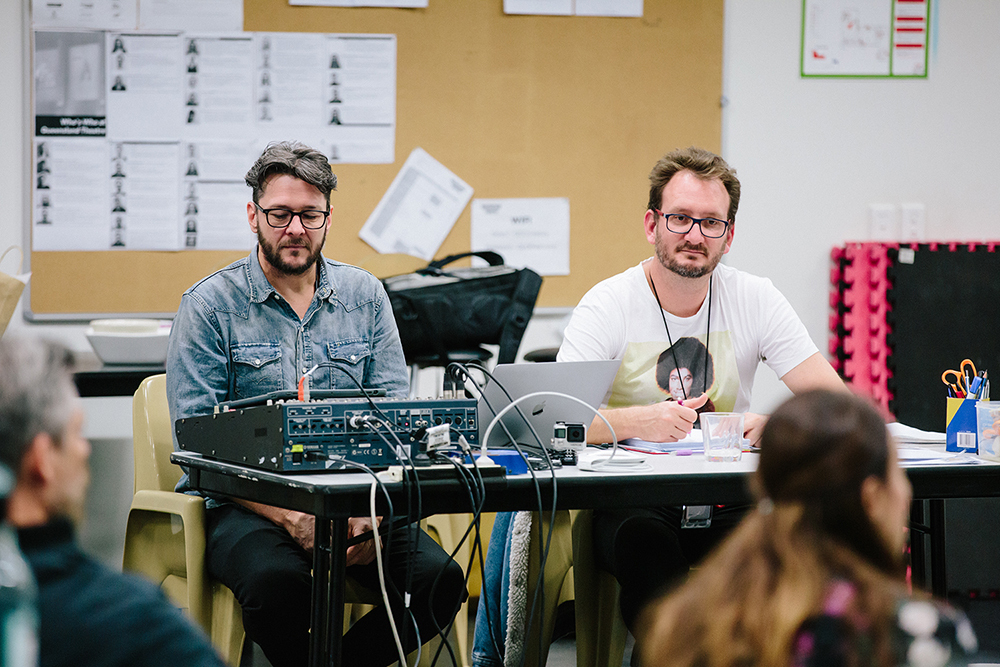
What are your favourite stories?
My very first stage management job with Queensland Theatre was in 2000 with a play called The Skin of our Teeth by Thornton Wilder and it was Michael Gow’s first directing job as the new Artistic Director of the Company. There is a role in the play called ‘Stage Manager’ and Michael Gow had decided that he wanted the actual stage manager to play the role in the show. It wasn’t a very big part, maybe 15 lines total. So Michael Kaempff, who was Production Manager at the time rang a few stage managers and asked them “would you be prepared to go on stage and speak lines?” and they all said “NO”.
Which is how I got the job.
It was my opportunity to work with the new Artistic Director of the state theatre company. The cast included Carol Burns, Roxanne McDonald and Jason Klarwein (making his debut) — a surprising number of exceptional Brisbane actors. It ended up being an incredible experience.
It was the only time I’ve ever been on stage… except for show stops.
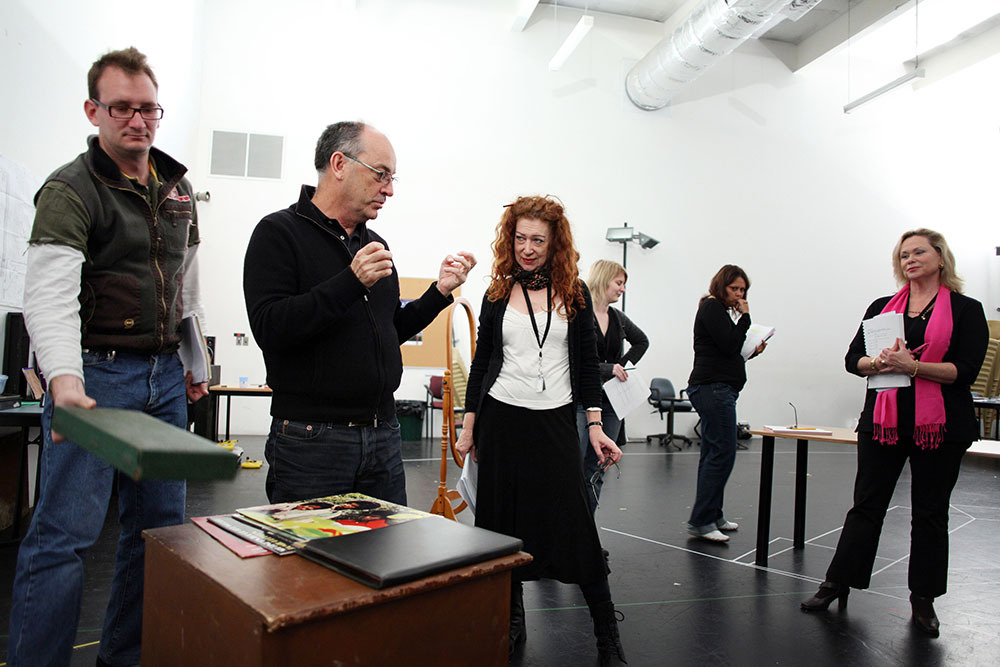
Another time we were doing a play called The School of Arts, written by Bille Brown. It was going to be a regional tour of all these small cities that were so small they didn’t even have proper theatres. We were playing in townhalls and stuff like that. So we get to the third preview, the show before Opening Night. One of the actors was supposed to finish Act One by running off stage pursued by another actor. Act One finishes, the actor gets chased off stage. He ran past prompt corner, slipped over, swore, stood up (this was at the Playhouse) and then limped down that flight of stairs to the dressing rooms.
I go downstairs to check on the actor and he’s lying on the floor with his pants off, screaming in pain and begging for a morphine injection. The first aid officer is saying “no, no, no”. The actor is trying to convince us to put him in a wheely chair so he can be pushed around to finish the show. So we put him in a wheely chair gave him a little push and he screamed again. So I said, “nope, we’re not doing that.”
The director, Michael made the call to send the actor to Accident and Emergency immediately and said that he would go on stage and play the role with a script in his hand for the second half.
The actor had broken his leg and couldn’t do the rest of the season, so we had to get another actor in for Opening Night — Bryan Probets. We spent the whole day teaching Bryan the blocking so he could do the performance with a script in his hand. It was a very big deal. We had Geoffrey Rush and many other important people coming for this opening, so the pressure was on.
I have made a number of emergency announcements in my career but this was where I first learnt how to do one. Before every show, I had to go on stage, chat to the audience and explain why we still had an actor on the script “please forgive us”. We did this because Michael thought it was nicer to have the stage manager come on stage instead of making the announcement over a loudspeaker. He was right. So now if I ever have to alert the audience of a change, I always try and do it face-to-face instead of over a microphone.
And that’s the story of the second time I ever went on the stage.
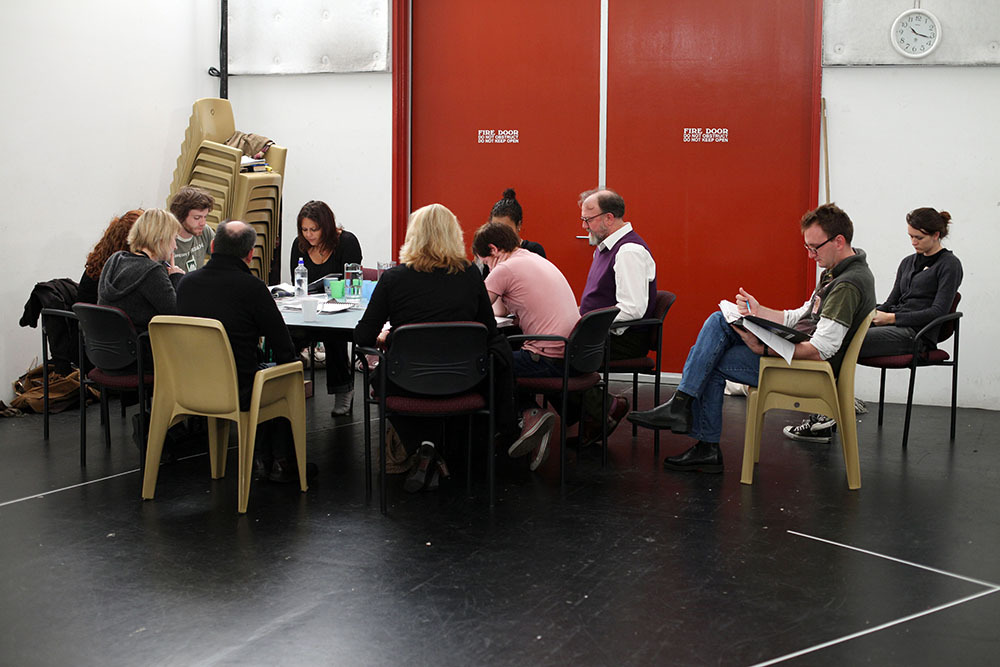
I have one other story, I didn’t have to go on stage for this one, but a possum did.
I was doing Fountains Beyond (2000) at the Gardens Theatre, this was a long time ago, Wesley Enoch was the director but it was before he had taken over the Company — he was a young man. So was I. It had a great cast including Roxanne McDonald, Lafe Charlton, Tessa Rose — just fabulous. The set was completely covered in sand and there was a big truck at the back where the characters would load all their belongs to be taken away at the end.
One of the characters was making drop scones, that the rest of the cast had to eat. We had a proper little camp stove and griddle that she’d use to mix and fry the dough. Then she would hand them out to the rest of the actors who had to pretend to eat them. But, the amount of dialogue she had to say while cooking the scones was not enough time to actually cook the bread, so it just lightly fried raw dough that the cast would pretend to eat and then bury in the sand.
Possums started coming into the theatre in the middle of the night, digging through the sand to find all these half-eaten scones and had a bit of a possum party.
There was a scene of the play where one of the characters had died, and it was devastating. All of the other characters on stage were doing an Aboriginal death wail to mourn their loss. It was really beautiful. Until… I felt this hard thing brush past my head and land on me. It was a possum. It jumped off my lap and strutted dead centre down the stage through the wailing actors. Everyone was trying so hard not to laugh and hide their smiles so that they wouldn’t ruin this incredibly sad funeral moment.
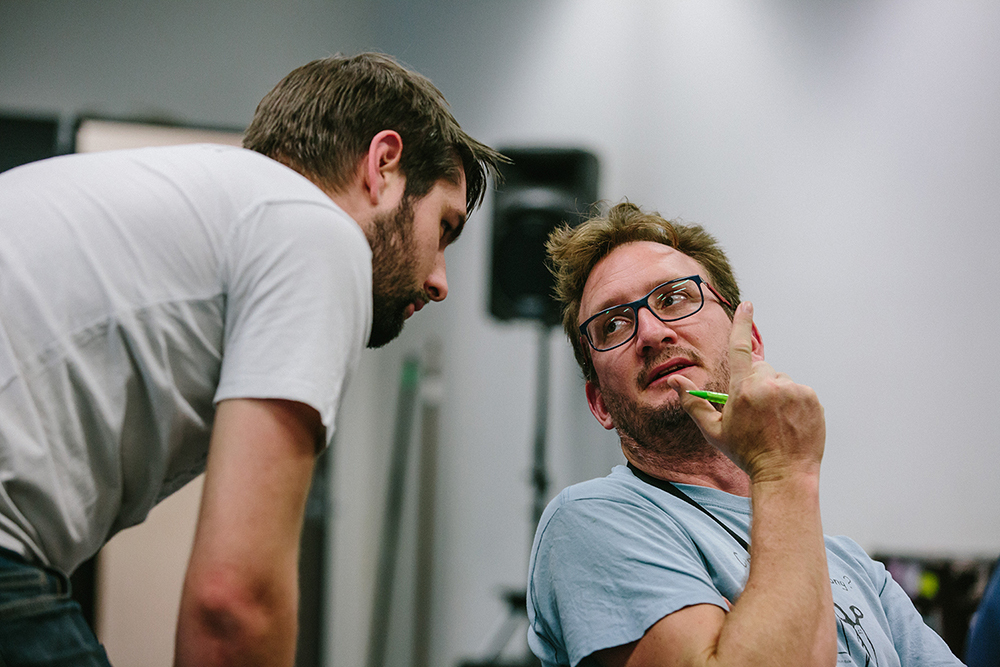
What was your pathway into this industry?
When I was a little kid my parents tried very hard to make me interested in sport. Which I wasn’t. They wanted all of their kids to do extra-curricular activities, so they got me to try a bunch of different things, all different types of sports, until they eventually enrolled me into a children’s theatre group, which I really loved.
I did that all the way until I was 17/18 and started volunteering at the Darwin Theatre Company where I would stage manage shows for them. The guy who ran it at the time suggested I audition for NIDA and I got in.
Through NIDA, I chose some really good secondments, including Queensland Theatre Company and Melbourne Theatre Company — and incredibly enough, both companies offered me jobs the year after I graduated.
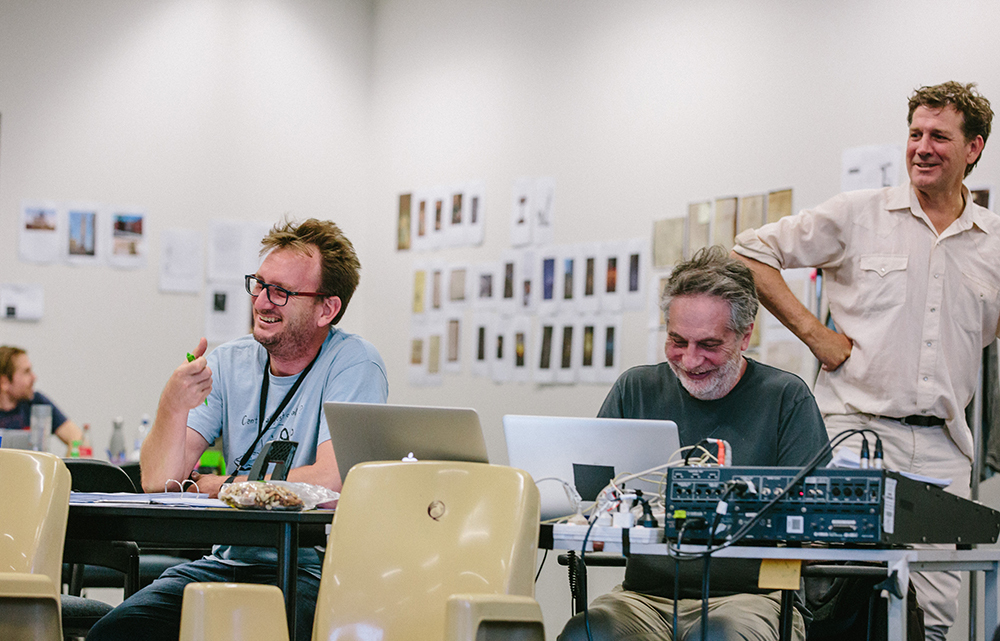
Do you have any tips for working with strong personality types?
You need to have a good combination of friendship and firmness. Someone might have the most amazing creative idea that is not safe. When you say “no, you can’t do it”, they might take that as a personal attack, rather than if you said, “I’m looking after your health”. I believe that in a field like theatre, the show is better when every single person in the room is happy. You can’t be happy if you’re not safe. You have to be straight down the line with what the rules are. You cannot be flexible with somebody’s safety.
What advice do you have for people who are interested in becoming a stage manager?
For a start, you need to develop a thick skin because we are at the centre of every eccentric personality that is involved in putting on a show, and there are A LOT. The only reason I’ve been a stage manager for 23 years now is that I have grown to love those personalities.
The buck stops with the stage manager, so sometimes people will get angry with you. If someone is yelling at you, even if it’s not your fault, you just kind of have to put up with it. Half an hour later they’ll probably come and apologise, offering to buy you a drink at the end of the night. You need to have a thick enough skin that in the moment, you can let it wash over you.
Also, try to get as much practical experience as you can. Start volunteering for amateur theatre groups. Volunteer as much as you can and keep improving your skillset. It helps knowing how to do a bit of laundry, set building, props making, all of that kind of stuff. Get as informed as you can.
Finally, I'd say finding a course is a really good way to do it. Many of my jobs came out of NIDA. It is possible to get into the industry without formal education, but it’s harder.
Stage Management Day on Saturday 10 October places one of the most essential roles of any theatre production firmly on centre stage. We’d like to applaud all of the stage managers we've worked with over the last 50 years. Your passion and countless hours of hard work have been essential in sharing our stories with Australian audiences.
We also recognise that 2020 has been an incredibly tough year for the profession with so many productions shut down due to the pandemic. The Actors’ and Entertainers’ Benevolent Fund of Queensland is working to support arts industry professionals through this challenging time.